#battle of Borodino
Text
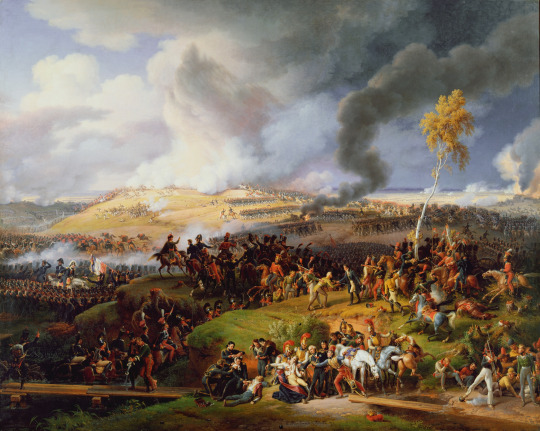
Battle of Borodino - Battle of Moscow, 7th September 1812
by Louis-François Lejeune
#battle of borodino#battle of moscow#art#history#painting#europe#european#napoleonic#napoleonic wars#russia#france#french empire#french#la grande armée#russian#russian campaign#palace of versailles#château de versailles#louis-françois lejeune
50 notes
·
View notes
Photo
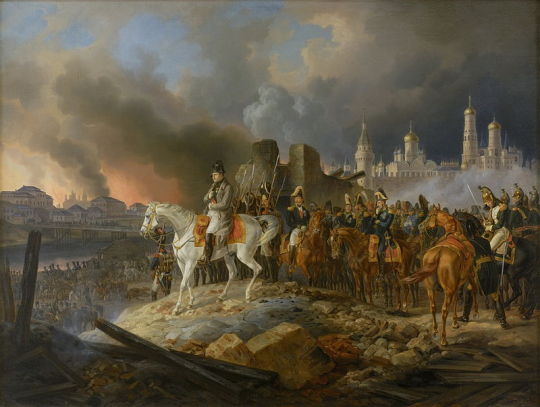
Napoleon in burning Moscow - Adam Albrecht
During the French occupation of Moscow the 1812 Fire of Moscow persisted from 14 to 18 September 1812 and all but destroyed the city. The Russian troops and most of the remaining residents had abandoned Moscow on 14 September 1812 just ahead of French Emperor Napoleon's troops entering the city after the Battle of Borodino. The Moscow military governor, Count Fyodor Rostopchin, has often been blamed for organising the destruction of the sacred former capital to weaken the French army in the scorched city even more.
#Fire of Moscow#Battle of Borodino#Count Fyodor Rostopchin#Napoleon#XIX century#russian campaign#french history#russian history#Adam Albrecht#paintings#art#arte
2 notes
·
View notes
Text
Review: War and Peace - by Leo Tolstoy
‘War and Peace’ needs no introduction. It holds its place in the minds of contemporary society as a literary classic. One cannot pick up a newspaper article on great books without a passing mention of Leo Tolstoy’s masterpiece. Like other classical works such as the Bible, I think that their obvious fame means and their influence on society and heir survival into modern times means that at the…

View On WordPress
#1789#Adolf Hitler#Anna Karenina#Artitocracy#Austerlitz#battle of austerlitz#battle of borodino#Bezukhov#Bolkonsky#Bolshevik#Borodino#Bourgeoisie#communism#communist#Count#CrimeaN WAR#Czar#Denisov#dictator#Dostoyevsky#eating horses#enlioghtenment#European#fiction#france#French revolution#Grande Armée#history#Hitler#Homer
0 notes
Text
every time

#it was so sad!!!#like these two were fighting like dogs the entire campaign and they put aside their differences for this ONE FINAL BATTLE#and it’s the one where Bagration fucking dies!#top 10 anime deaths for real#peter bagration#barclay de tolly#the battle of borodino#napoleonic wars
64 notes
·
View notes
Text
Some more Borodino photos (and a video) I managed to sort out. ❤️💙
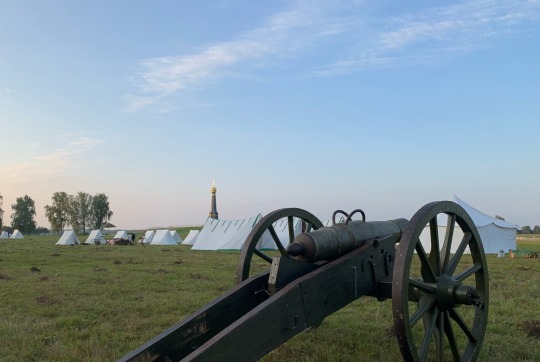
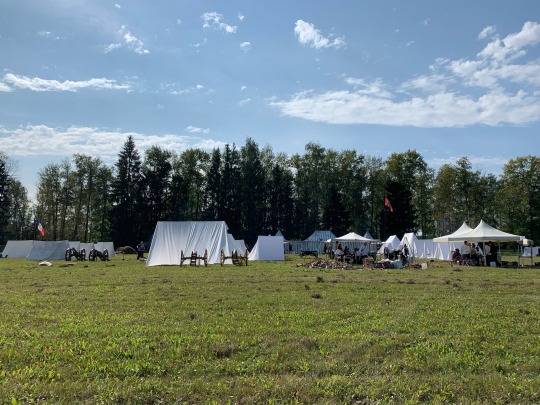

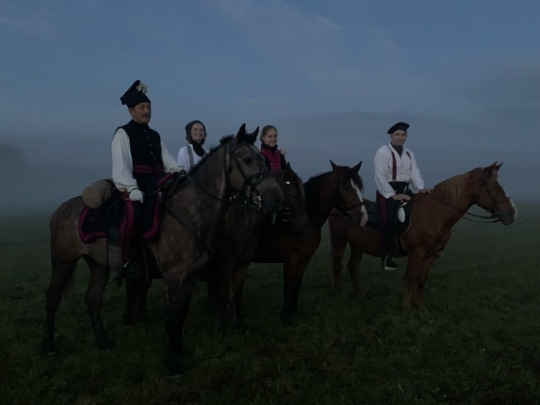
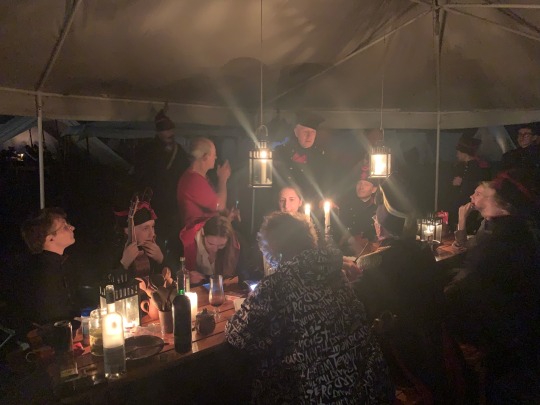
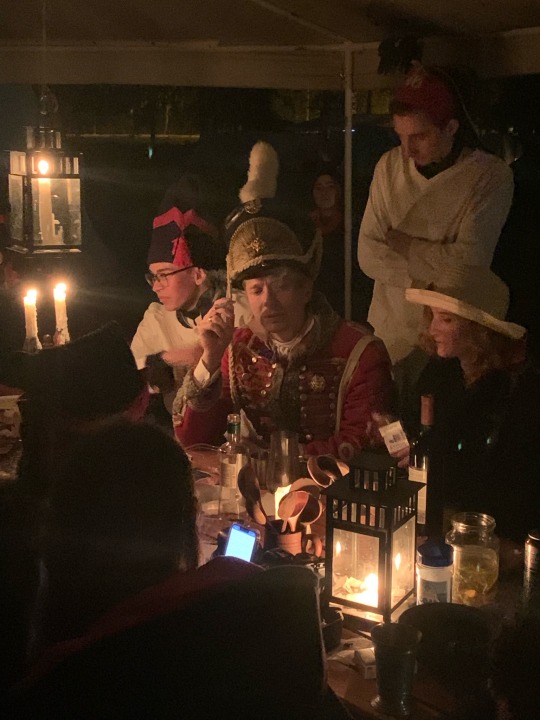
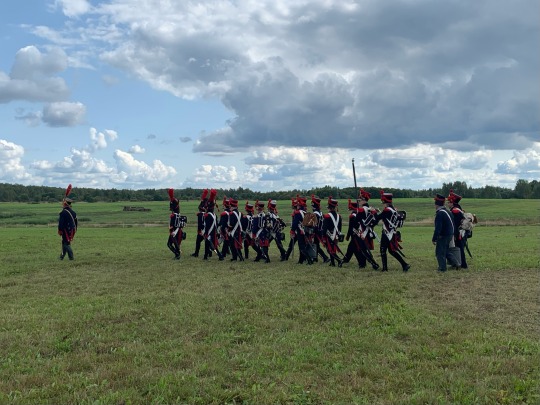
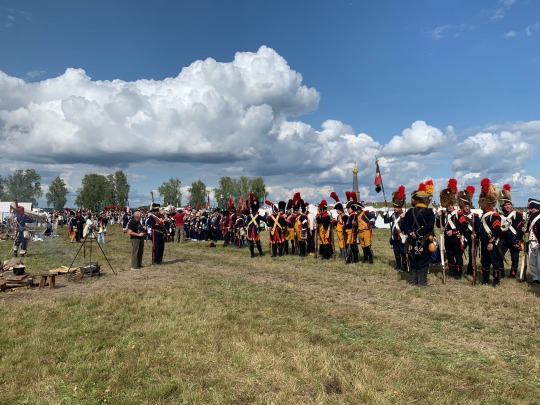
#history#reenactment#historical reenactment#borodino#the battle of borodino#napoleonic era#napoleonic wars#the war of 1812#19th century
82 notes
·
View notes
Note
dostoevsky or tolstoy?
tolstoy! just because I have read both war and peace and anna karenina and I never let an opportunity to mention that I have both read war and peace and anna karenina pass me by!
#asks#part of me always with my good friend pierre at the battle of borodino! that part of me can never ever leave#sjdjjsks
8 notes
·
View notes
Text
I can excuse historical inaccuracy but I draw the line at stealing somebody else's soundtrack
#dawn from pride and prejudice is used twice in scenes with napoleon and josephine talking#then the soundtrack in the battle of borodino scene is from another battle scene from war and peace the bbc show#if I remember correctly#this one is kinda fine since martin phipps himself was the composer for war and peace#still quite lazy#and I hope dario marianelli sues their asses#napoleon 2023
11 notes
·
View notes
Text
wow have you guys heard of this (the french invasion of russia in 1812)
0 notes
Text
Napoleon the Great :: Andrew Roberts
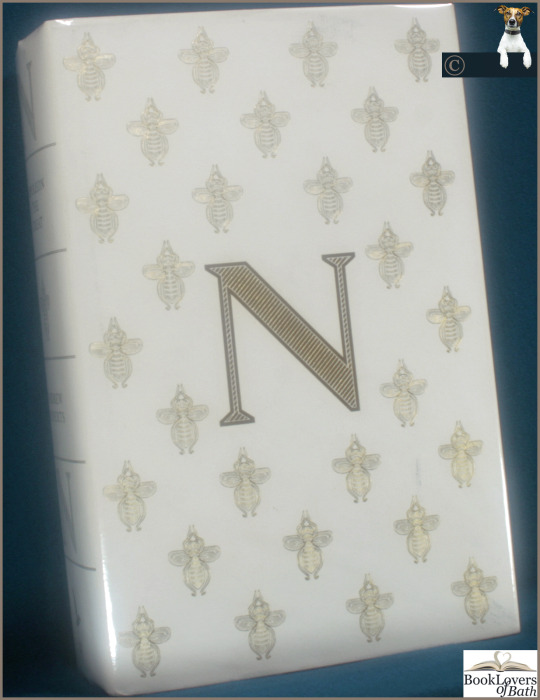
View On WordPress
#978-1-8461-4027-3#austerlitz#battle borodino#battle marengo#books by andrew roberts#brumaire#campaign#confederation rhine#elba#emperors france#first french empire#french emperor#french emperors#french history#french kings#french rulers#french statesmen#history france#marengo#napoleon i#napoleonic france#napoleonic wars#polish campaigns#st helena#syrian campaigns#waterloo
1 note
·
View note
Text
My Napoleon Review
I really wanted to like this movie. When it was first announced, I was one of the people in our little community here with a hopefully-optimistic, wait-and-see approach. I wanted to love it the same way I loved Gladiator and Kingdom of Heaven and other historical epics that, despite not being historically accurate, still managed to hook me with good storytelling, excellent casts, and memorable battle scenes and imagery. Ridley Scott's Napoleon has none of the above.
You know what I liked about it? The uniforms. The uniforms looked magnificent and were probably the most accurate aspect of the movie. Almost like Scott had help from historians, but that can't be the case, because Scott says he didn't actually need historians to make Napoleon.
What I was not expecting from this movie was to be bored. Yet that's what I was, for at least the first hour and a half. I'm honestly just perplexed by this even now. I don't know how it's actually possible to make the life of Napoleon Bonaparte so thoroughly uninspiring and dull, but Scott managed to pull it off.
To be fair, he was aided in this superhuman effort by Joaquin Phoenix. I never in my wildest dreams could've seen him doing such a poor job with his interpretation of Napoleon. But honestly, the fact that he's too old for the role actually ended up being the least of what I disliked about this performance, which was basically everything. The early reports coming out when the movie was still being produced about Phoenix putting a lot of effort into understanding Napoleon's psychology gave me what turned out to be a completely misguided hope. When you read descriptions of Napoleon from his contemporaries, you see an energetic, charismatic, vibrant being who exerted an almost inexplicable magnetism that drew people to him and inspired devotion and admiration, even among his critics. There is nothing even remotely inspiring, energetic, charismatic, or vibrant about Phoenix's grim, dour, monotoned Napoleon. He only ceases being grim and dour to become a clown, or to indicate to Josephine in some undignified manner that he is once again in need of sex (at one point he actually oinks repeatedly). In one scene he literally crawls under the dining room table towards her on all fours, while the embarrassed valets watch.
The relationship between Napoleon and Josephine is totally devoid of chemistry. Kirby's acting was fine, but she was given a trash script to work with. At one of their early meetings, Josephine flat-out spreads her legs in front of Napoleon, invites him to look down, and declares that once he sees what's down there, he'll never stop wanting it. It was the cringiest scene imaginable, and frankly an insult to the real Josephine's memory, as were the pathetic sex scenes. The scene of the official divorce is stripped of any dignity by Scott, who decided to have Josephine randomly chuckle at various points while reading her statement, and then made it even worse by having Napoleon actually slap her across the face.
Even the battle scenes were a joke for the most part, and that was the one area where I was certain this movie would shine. It's the usual fare of Side A charges across an open field at Side B, with no discernible tactics whatsoever. Napoleon yells "Send in the infantry!" Shortly after that, "Send in the cavalry!" Corps, regiments etc are just nonexistent; the armies are just big masses hurtling towards each other while the artillery blasts continuously. The Borodino battle scene lasts maybe two minutes and was just disappointing on every level, like damn near everything else in this movie.
Oh, remember that bit from one of the trailers of Napoleon charging headlong, saber drawn? That actually occurs during the Borodino scene. The battle during which real-life Napoleon was uncharacteristically lethargic (and possibly ill) and barely left his tent. And then to top it off, Scott also has Napoleon ride into the fray during the Waterloo scene, and start cutting English soldiers down with his saber like Mel Gibson's William Wallace in Braveheart. I almost fell out of my chair laughing.
The guy they cast to play Wellington appeared to be at least 60 years old. Christopher Plummer he was not. I'm actually planning to watch Waterloo sometime this weekend as a pallet-cleanser.
I imagine the eventual four hour director's cut Scott has spoken of will flesh the narrative out more, but I'm not even sure I'm interested in seeing it after this. I can only hope the rumored Spielberg HBO series on Napoleon will transpire and put in the effort that Scott was not willing to.
Well, the good news is that Rod Steiger is no longer my least favorite Napoleon.
202 notes
·
View notes
Text
Napoleon (2023) Review
I know many of you have posted your own reviews and what I'm going to talk about will cover most of what people have said but I wanna give my own perspective on the movie. As you know spoilers will be said, so if yall still haven't watch the movie go before reading.
Alright first, I would like to say the movie overall wasn't that bad nor it wasn't great. Some battle scenes were a bit confusing, Borodino was the one which I got the most confused because of how quick the scene was. One moment I was watching soldiers fight and then it was done, which I guess they wanted to get to the part of Napoleon arriving at Moscow but I digress.
During the Seige of Toulon, I was a bit confused with Napoleon's reaction throughout the whole battle. He was hyperventilating and panicking which seemed strange to me since he was always calm and collected during stressful situations, especially this battle since it was his 'debut' and was an important plan in getting Toulon back in French hands. I understand him being a little bit nervous, but he had to stay calm for the soldier's sake.
Now, lets talk about Napoleon and Josephine's relationship, oh boy, it was a mess. I did like how Naps acted a bit awkward during their first meeting since he was pretty shy and weird around the ladies in real life, but after that the whole relationship seemed too toxic than what it really was. Like the scene where Josephine returned to the chateau after Naps came back from Egypt and him yelling at her and basically telling her she was a slut, him threatening divorce because she couldn't get pregnant at the beginning of their marriage, or when Naps got angry at Josephine yet again and threw food at her, or him slapping Josephine during the divorce scene. I literally let out a gasp when that happened. That whole representation of their relationship was a freaking mess, and don't even get me started with the sex scenes! They were so weird and Naps making animals noises before doing it didn't make it better. I think the worst for me was when Naps called Josephine "little one" like don't start with that kinky shit smh. Also the part where Alexander went to visit Josephine at Malmaison was not necessary, they did develop a friendship but it was nothing more than that.
Besides all the negative things I did like a few things about the movie. For starters Napoleon's first interaction with Josephine, that was a nice touch. The lamb chop scene was hilarious and everyone including me laughed at the scene. Naps falling down the stairs after almost getting killed by the Directory and saying "oh fuck" under his breath while standing up was funny. Even the scene afterwards where Naps and Lucien were struggling to get out and keep everyone inside was funny. His facial expression he made while trying to regain himself had me dying.
What caught me by suprise was Junot being in the movie because correct me if I'm wrong but no other movie had Junot included in it, so when Naps first yelled "Junot" during the Seige of Toulon I was like 'huh? Junot? Like Jean Andoche Junot?? THE JUNOT?? I can't believe what I'm hearing!" and sure enough Junot was in the movie! Even though it was only for like 30 minutes but him being in the movie made me so happy because he is never mentioned in any form of media.
Overall it wasn't as bad as I expected. I still wished they would've added other marshals like Murat and Lannes, but I do appreciate them adding Davout since he is also someone who doesn't get mentioned in movies a lot, so props to you Scott (I guess). I did get over the historical inaccuracies pretty quick, but Wellington and Naps meeting did rub me the wrong way knowing that they never met each other in real life. Also, Ney with a moustache...why??
So that's all I wanted to say about the movie. Sorry if this was a longer post, but I wanted to write down everything before I forget. Thank you for reading!
#there was guy snoring behind us which ruined almost half of the movie#we got churros afterwards tho#napoleonic era#napoleon bonaparte#french history#napoleonic wars#napoleon 2023#ridley scott#joaquin phoenix#movie review#josephine de beauharnais#a mimir
54 notes
·
View notes
Text
Ida meets Ney in Russia
I dimly remember that somebody (Cadmus?) mentioned they wanted to read more from Ida. So here’s a brief snippet of Ida – for once – getting in trouble with her hero, of Ney scolding her and … being jealous of Eugène?
The meeting takes place somewhen in late 1812 or early 1813, as much as it’s possible to tell from Ida’s chronological rollercoaster ride. In any case, after or at the end of the Russian retreat. Because of course Ida had joined the Russian campaign as well.
And not only she. If any tumblerinas here plan on learning how to time travel and want to go back to see the Grande Armée march towards Moscow, they don’t need to worry about incognitos. Most likely they would barely be noticed, as apparently there were wagonloads of groupies following their heroes around.
Okay: four. But that’s only those ladies Ida travelled with. Plus, two of them died on the way back.
Ida was particularly fond of a Polish-Lithuanian girl named Nidia, as madly in love with general Montbrun as Ida was in love with Ney. Not that either of the two got to see their idol much during the march. As a matter of fact, the first thing Nidia learned before entering Moscow was that Montbrun had been killed at the battle of Borodino. Other than that, Ida claims to have had a bad feeling about this city from the start:
As we entered Moscow, occupied at last by our troops, this immense city seemed to us like a vast tomb; its empty streets, deserted buildings and solemnity of destruction were heartbreaking. Despite the pomp of victory, I felt struck by I don't know what new kind of melancholy when I saw it; the flags seemed to me gloomy and almost surrounded by funeral crêpes and black forebodings. We were staying in Rue Saint-Pétersbourg, near the Miomonoff palace, which was soon occupied by Prince Eugène. The sight of this young hero and the cheers of the soldiers, who adored him, gave us back all the illusions of victory.
Okay, so I just added this because it’s so rare to see Eugène receive some praise. (I should also mention that the adored young hero was growing bald at an alarming rate and that his bad teeth were killing him.)
As a matter of fact, Ida claims that Nidia was especially interested in Eugène because he was rumoured to maybe become king of Poland (yes, another candidate). These rumours did really exist, Eugène mentions them in a letter to his wife before the campaign started. (And he also makes it pretty clear that these are just rumours and that he has not the slightest ambition to stay in this country. He may have used different vocabulary than Lannes but he didn’t like the region any better.)
The following night, Ida and Nidia wake up to a burning Moscow and are saved by soldiers of 4th corps. On the retreat, they seem to have followed headquarters as closely as possible, which was their safest bet to stay alive (because where the emperor is, there’s food and firewood and a resemblance of order) but still witness horrible tragedies. After the crossing of the Berezina, they apparently followed the remnants of Eugène’s 4th corps to Marienwerder, before Nidia says goodbye and goes back to defending Poland.
But before, on the way, at Valutina (?), Ida finally sees Ney again
At this point, after the retreat, Ida at least starts to question her decision to follow the Grande Armée around. Or something like that.
I have just recounted my fatigue, my difficulties and my perils in a war beyond human endurance, because of the new aspects it seemed to give to destruction and death. A powerful feeling made me undertake everything and endure everything. Why was I going to face the hazards of a campaign? Why was I going to expose the weakness of a woman to the rigours of a climate of iron? In order to obtain yet another glance from the one whose smile had always paid me for my military errands. This look was always like a world offered to my hopes; the dream alone of this reward had made possible all the impossibilities of time, distance, sex and fortune. My life was thus burnt for a few hours, still uncertain. I was giving up everything for a moment in space. Alas! this time, how I was going to regret this moment that had cost me so much to conquer! I had just gambled my existence for a flash of happiness, and this flash, the quickest of my life, became the cruelest.
I had to spend three fatal hours in a miserable shack on the outskirts of Volutina. My dress was so horrible that it was a real disguise. In a person dressed like that, one could hardly suspect a woman. Ney, however, only had to look my way to recognise me. To have been seen was enough to have been discovered. I was about to rush to the front of this first happiness; I was about to testify to the soul of my life how proud I was of this divination of friendship, of this perspicacity of memory, when words of an energy which was far from that of the feeling of which I was possessed, intimated to me the order of the most positive dismissal:
"What are you doing here? What do you want? Go away quickly."
With this address and a few short, curt rebukes about my reckless rage and my fury at following him everywhere, I only had the strength to reply: "It is a rage, indeed, but it is not at least the rage of pleasure or vanity," pointing to my coarse clothes and my face burnt by the sun and faded by fatigue. He took no notice of either the harangue or the costume. He was off and running. His displeasure at seeing me there was so great; he let it out so vividly that I thought he was going to push me back to the opposite bank of the Dniéper in his anger. Stunned by the reception, struck by lightning, I remained motionless for more than an hour, staring at him, thinking I saw him; he had disappeared without paying any more attention to me or worrying about me.
From which we can deduct that Ney was not a reader of Jane Austen novels. Otherwise he would have known that whenever you have behaved in a way that made a woman fall in love with you that’s f-ing your fault, monsieur!
In 1813, when I recalled to Marshal Ney this scene of such violent fury, followed by such cruel silence and abandonment, he told me that he had been so mortally frightened by the extravagance which had pushed me into the midst of so many perils and the licentiousness of an army, that he had even been tempted to beat me. Truth requires me to admit that the temptation had been so strong that he had, I believe, yielded to it a little; it was without his knowing it, for the great passions know neither all they want nor all they do. Anger is therefore still love, since it is as blind as fury.
Girl, get help. Seriously.
When we crossed the Dniéper at Serokodia, I could have had another word with him. A new laurel had just hidden his wrongs and healed my wound. I could have, I wanted to say to him: You have just added to your immortal glory here; you alone have just saved Frenchmen lost in deserts of ice; I would have liked to express to him what all parties repeat today, what posterity will proclaim on the ashes of the brave... But I stuck to the joy of hearing the distant cheers. There was then a little fear in my delirium for him, and I almost have the idea that I idolised him even more by fearing him in that way…
Did I mention the thing about getting help?
Yes, even the reproach was appreciated by my heart, and still seemed to me a tender interest. I found I don't know what pleasure in hearing myself scolded later for my association with Nidia, my marches and counter-marches with the Viceroy's troops. No matter how many times I told the Marshal that Eugène's protection had been focused exclusively on the young Lithuanian girl, and that I had slipped unnoticed into this benevolence, he took it into his head to believe nothing of these sincere protestations. To make him reconsider such a strongly conceived idea would have meant exposing myself to a repeat of the Dniéper order and military correction. I had no intention of trying the same pleasure twice. Finally, he saw the evidence of my attachment, and he found the generosity to prove this belated but strong conviction to me [...]
By calling her his brother-in-arms, by the way. And this, I believe, really meant a lot to Ida.
#napoleon's marshals#michel ney#ida saint-elme#memoirs#napoleon's family#eugene de beauharnais#russian retreat#russian campaign#russia 1812#also#we have a phone call by a certain vice-queen interested in the exact definition of the word “protection” in this particular context
43 notes
·
View notes
Text
Wait wait urrgggh I was reminded of another thing in Ridley Scott’s Napoleon I hated
After the “battle” of Borodino (all 40 seconds of it) there’s some text in screen saying 28.000 French dead. This is only done here.
There are arguably 6 battles in this movie (Toulon, 13 Vendémiaire, Pyramids, Austerlitz, Borodino, Waterloo).
Why is a text like this only shown during one of them?
Why does it only show French casualties? Why not the Russian numbers also (some 44k to 52k)?
Is it just to reflect Napoleon’s ‘butcher’s bill’, a tyrant feeding his own people into the grinder as Sir Scott would like to remind us? Because the mere 289 French killed/wounded at the battle of the Pyramids and 1288 at Austerlitz would throw that narrative into question too much to do this with any level of consistency over the course of the movie - even if it might in some distant way have helped provide the movie any kind of actual thematic throughline (“Napoleon sacrifices many French for his own ambitions”)
And Sir Scott was probably in an equally problematic dilemma when it came to adding Napoleon’s opponents’ losses because it would tragically, unintentionally reveal to the audience Napoleon was actually a very good general (enemy losses at the Pyramids, Austerlitz and Borodino were some 10.000, 15.000 (including wounded, and another 12000 prisoners) and 44.000), rather than it being ‘just a thing he sometimes did’ for unexplained reasons, in between having a bad relationship with Josephine. Scott already did his best to ignore Napoleon’s two most brilliant campaigns: The Italian Campaign and 1814 Six Days.
Just one more weird, inconsistent directing choice for this movie. Rant over.
24 notes
·
View notes
Text
oh my god he had Napoleon lead a cavalry charge at the Battle of Borodino I'm fucking malding
He generally didn't lead cavalry charges, because he was an artillery officer, and he certainly didn't lead them in Russia.
He quite infamously sat on his fucking ass a good distance away from the battle.

9 notes
·
View notes
Text
He is another general of Napoleon Bonaparte who offered one of his sons to the Empire…And of course it is Antoine-Jean Gros who immortalizes on canvas these young heroes who died for their homeland.

General Jean Ambroise Baston Count of Lariboisière and his son Ferdinand, appointed in November 1811 second lieutenant, 1st company in the 1st squadron of the 1st rifle regiment.by Antoine-Jean Gros
Antoine-Jean Gros depicts a son greeting his father a few hours before he was mortally wounded at Borodino during the Battle of the Moskva in September 1812.

Having been Napoleon's page at 16, his personal surgeon will not succeed in saving Ferdinand from his gunshot wound.
Very affected by this death, Napoleon awarded Ferdinand de Lariboisière 1790/1812 the Cross of the Legion of Honor on the battlefield.

Ferdinand's older brother, Honoré-Charles, was luckier. An artillery officer, he was aide-de-camp to his father, who had become a general.
During the retreat from Russia his feet were frozen but escaped when almost the entire imperial army was wiped out.
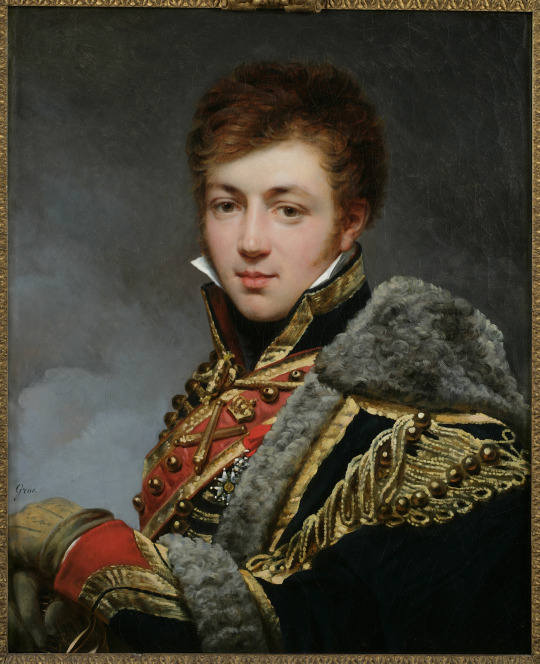
1815, Honoré-Charles Baston de Lariboisière 1788/1868, by Antoine-Jean Gros
On his return to Paris he became, in 1815, an orderly officer of the Emperor.
15/1815, Honoré-Charles Baston de Lariboisière 1788/1868, by Antoine-Jean Gros
14 notes
·
View notes
Text
Annual visit to the Borodino field was quite pleasant this year because of extremely mild weather - with the sole exception of a day, when it was raining cats and dogs…
However, unfortunate circumstances sometimes have a bright side too. In this case the rain in the afternoon caused thick fog to appear at dusk which turned the whole landscape into a majestic dream. 🌅
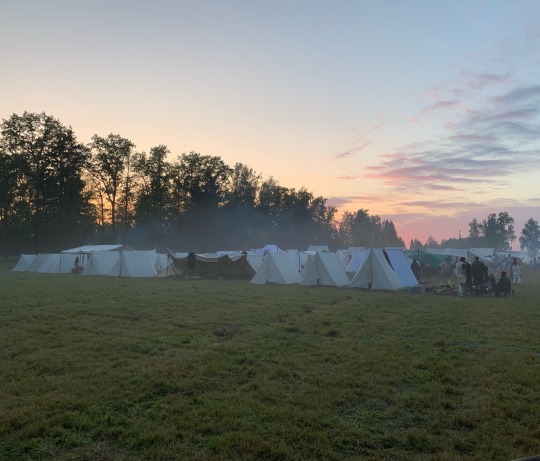
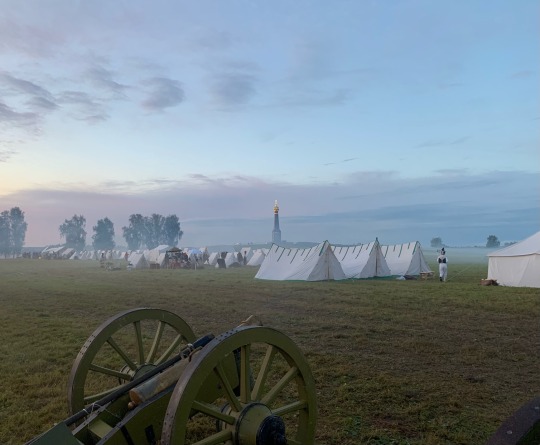
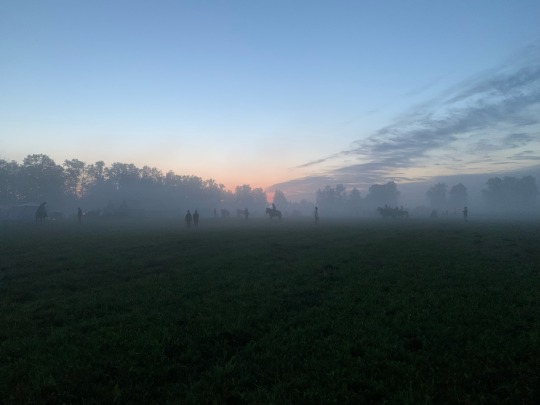

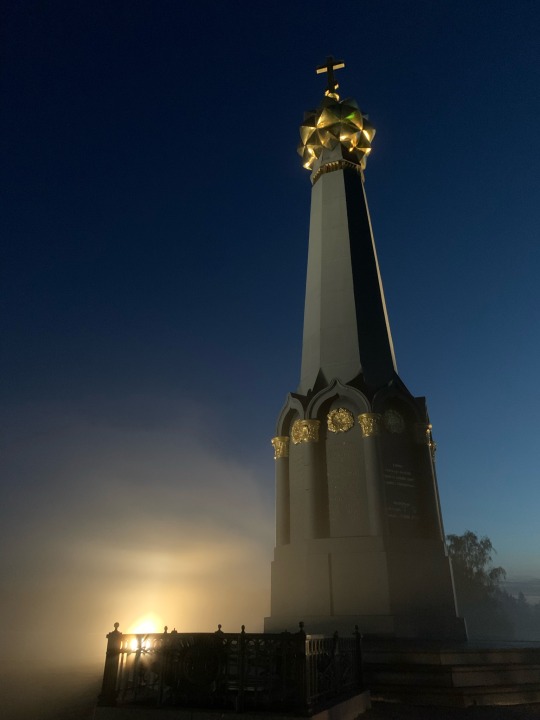
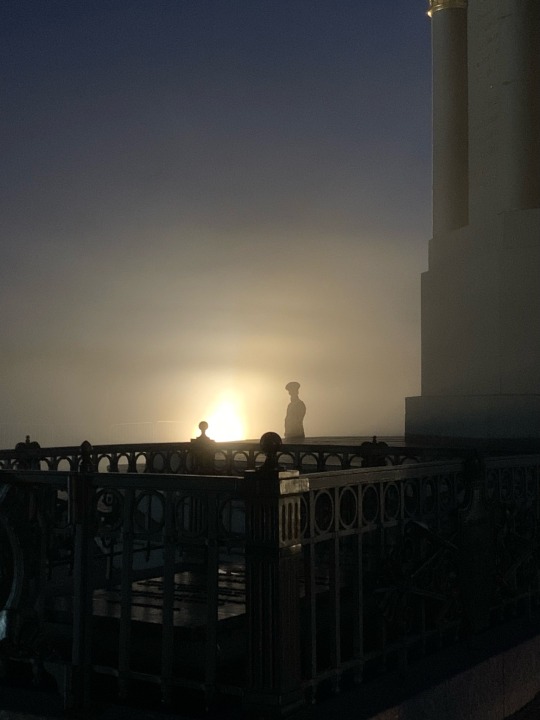
#count’s private life#history#reenactment#historical reenactment#borodino#the battle of borodino#napoleonic era#napoleonic wars#russian empire#premier empire#the war of 1812#19th century
46 notes
·
View notes